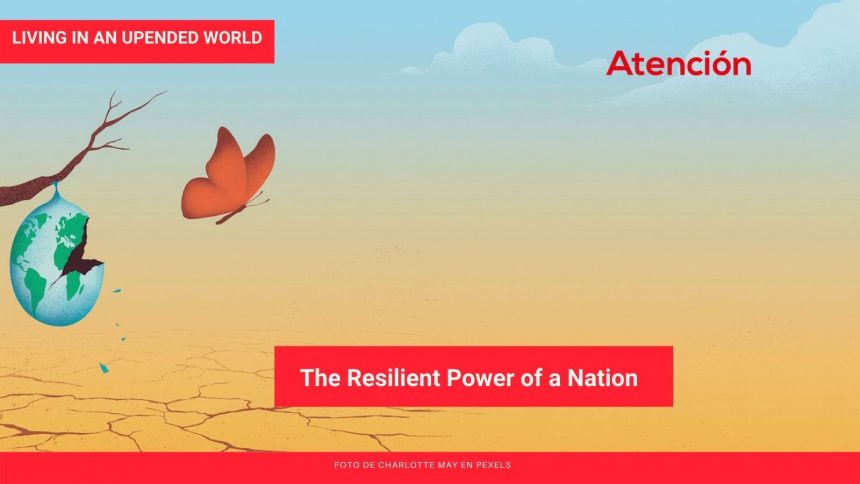By Natalie Taylor
The aftermath of COVID-19’s global onslaught has shown that the United States did not fare so well. Other nations failed miserably, but since the US is considered to be the most powerful nation in the world a better outcome was expected. National power is most commonly defined as military capability, but the pandemic is giving us a look at what is called “resilient power”: a country’s capacity to absorb major disruptions and quickly bounce back from them. It also means being able to fail and still recover. It’s quite similar to how psychologists define resilience in individuals.
The international power of a country is tied to its ability to be resilient to mass traumas—pandemics, cyberattacks, financial crises, climate change and the spread of disinformation. Examples of resilient power include how the US overcame the Great Depression and managed WWII; or how Europe and Japan surmounted the devastation of that war and rose after.
When the coronavirus came it didn’t care about military or economic power. It asked two simple questions of each nation: how will your least wealthy be treated during times of illness, and how swiftly can your medical system cope with unexpected demands.
Several countries proved to be resilient during the pandemic: New Zealand, Australia, Israel, Singapore, and several European nations. The Australian government, for example, began preparedness measures early showing the principle of being adaptive and dynamic in response to new circumstances. The other countries also responded quickly to the threat of viral spread, shared best medical practices and prioritized suppressing the virus over reopening the economy. Most importantly, they were not afraid to turn for help when needed. The proper response is predicated on public trust in government. It’s hard to mobilize a population when the political leaders are not following the science or worse, putting scientists down.
The US should have coped well with a pandemic; a year prior it had ranked first among 195 countries in terms of pandemic preparedness in a Johns Hopkins study. But afterwards, it finished fifty-ninth in socioeconomic resilience and one hundred-seventy-ninth in health-care access. Its vulnerabilities were exposed: political polarization, economic and health-care inequality, a president who downplayed the threat of the virus and rejected scientific guidance and a decades-long drive to optimize the economy. Another factor is the national creed of individualism, optimism and exceptionalism that has rendered the US reluctant to learning from other countries.
Until disaster strikes a country won’t know if it has resilient power. Resilience does not mean having no vulnerability, instead, it’s the ability to manage new vulnerabilities without being overwhelmed. The United States can bounce back. That, however, will require the government recognizing that human security is national security. It could mean focusing more on non-military threats particularly how to combat online disinformation with truth. A number of northern and Western European countries are doing so successfully, and they have lessons to share. Perhaps the US has learned a lesson in humility and will be more open to learning from others.

